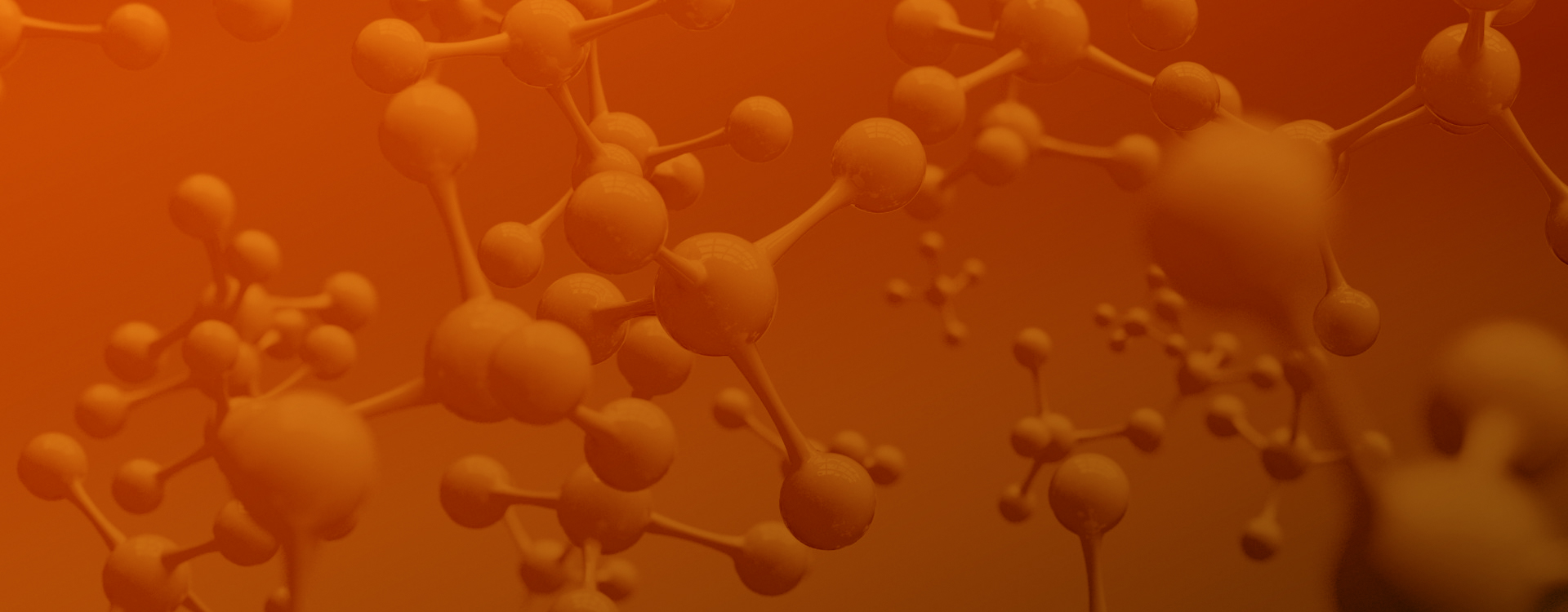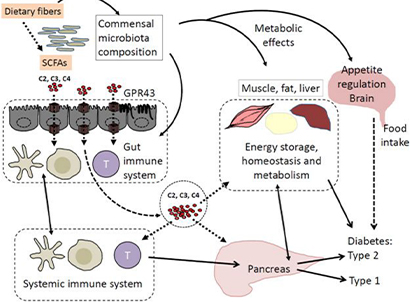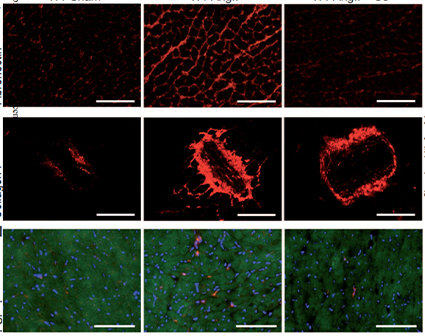
Quantitative Analysis of Short-Chain Fatty Acids
Quantitative Analysis of Energy Metabolism
Quantitative Analysis of Short-Chain Fatty Acids
Quantitative Analysis of Fatty Acids
Quantitative Analysis of Bile Acids
Quantitative Analysis of Trimethylamine Oxide and Related Metabolites
Quantitative Analysis of Amino Acids
Quantitative Analysis of Neurotransmitters
Quantitative Analysis of Organic Acids
Quantitative Analysis of Flavonoids
Quantitative Analysis of Carbohydrates
Quantitative Analysis of Plant Hormones
Quantitative Analysis of Carotenoids
Quantitative Analysis of Tannins
Quantitative Analysis of Phenolic Acids
Quantitative Analysis of Anthocyanins
The Quantitative Analysis of Short-Chain Fatty Acids (SCFAs) are mainly produced by the digestion of indigestible sugars such as dietary fiber, resistant starch and oligosaccharides in the colon by beneficial bacteria such as lactic acid bacteria and bifidobacteria, it mainly includes Acetic acid, Propionic acid, Isobutyric acid, Butyric acid, Isovaleric acid, Pentanoic acid, Hexanoic acid and so on. It has been found that SCFAs plays an important role in regulating blood glucose and controlling drug release by heterozygous with monosaccharide molecules. In addition, SCFAs can provide energy by oxidation, also important for maintaining water and electrolyte balance, anti-pathogenic microorganisms and anti-inflammatory, regulating intestinal flora balance, improving intestinal function, regulating immunity, anti-tumor and regulating gene expression.

Journal: Circulation Impact factor: 23.603 Published date: March 2019 Published by: Charles University Berlin
Arterial hypertension and its organ sequelae show characteristics of T cell mediated inflammatory diseases. Experimental anti-inflammatory therapies have been shown to ameliorate hypertensive end-organ damage. Recently, the CANTOS study targeting interleukin-1β demonstrated that anti-inflammatory therapy reduces cardiovascular risk. The gut microbiome plays pivotal role in immune homeostasis and cardiovascular health. Quantitative Analysis of Short-Chain Fatty Acids (SCFA) are produced from dietary fiber by gut bacteria and affect host immune homeostasis. Here, we investigated effects of the SCFA propionate in two different mouse models of hypertensive cardiovascular damage
To investigate the effect of SCFA on hypertensive cardiac damage and atherosclerosis, wild-type NMRI (WT) or ApoE-/- deficient mice received propionate (200mM) or control in the drinking water. To induce hypertension, WT mice were infused with Angiotensin (Ang)II (1.44mg/kg/d s.c.) for 14 days. To accelerate the development of atherosclerosis, ApoE-/- mice were infused with AngII (0.72mg/kg/d s.c.) for 28 days. Cardiac damage and atherosclerosis were assessed using histology, echocardiography, in vivo electrophysiology, immunofluorescence, and flow cytometry.

WT mice treated with AngII were intervened with sodium propionate (C3), and an equal concentration of sodium chloride solution was used as a control (Sham). It was found that mice fed with C3 had cardiac hypertrophy, fibrosis, vascular dysfunction, and hypertension reduced. Propionate also reduces susceptibility to arrhythmias and atherosclerotic lesions.

Further studies on ultrasound, pathology and single-cell analysis showed that propionate could reduce blood pressure-related injury in animal cardiovascular system and significantly improve its survival rate.

T helper cell subsets Th17 and Th1 may contribute to target organ damage in hypertension by releasing Proinflammatory cytokine interleukin-17 and interferon-gamma (IFN-γ). Propionate first acts on the immune system, inhibits the activity of helper T cells, the immune system acts on the cardiovascular, reducing the cardiovascular damage of hypertension.
Our data emphasize an immune-modulatory role of SCFAs and their importance for cardiovascular health. The data suggest that lifestyle modifications leading to augmented SCFA production could be a beneficial non-pharmacological preventive strategy for patients with hypertensive cardiovascular disease.
Bartolomaeus Hendrik,Balogh András,Yakoub Mina et al. Short-Chain Fatty Acid Propionate Protects From Hypertensive Cardiovascular Damage.[J] .Circulation, 2019, 139: 1407-1421
 © Copyright 2015-2022 Suzhou PANOMIX Biomedical Tech Co.,Ltd
© Copyright 2015-2022 Suzhou PANOMIX Biomedical Tech Co.,Ltd